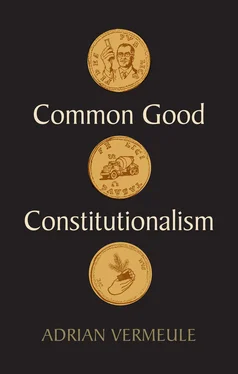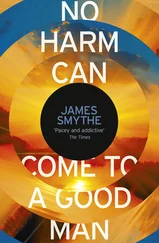The praetor is also said to render legal right ( jus ) even when he makes a wrongful decree, the reference, of course, being in this case not to what the praetor has done, but to what it is right for a praetor to do. Digest of Justinian 1.1.11 (Alan Watson, trans.)
Common Good Constitutionalism
Recovering the Classical Legal Tradition
Adrian Vermeule
polity
Copyright © Adrian Vermeule 2022
The right of Adrian Vermeule to be identified as Author of this Work has been asserted in accordance with the UK Copyright, Designs and Patents Act 1988.
First published in 2022 by Polity Press
Excerpt from Dante Alighieri, De Monarchia (Prue Shaw, trans. and ed.; 1995), reproduced by kind permission of Cambridge University Press.
Excerpt from Digest of Justinian 1.1.11 (Alan Watson, trans.; 1985, revised edition 1998), reproduced by kind permission of University of Pennsylvania Press.
Polity Press
65 Bridge Street
Cambridge CB2 1UR, UK
Polity Press
101 Station Landing
Suite 300
Medford, MA 02155, USA
All rights reserved. Except for the quotation of short passages for the purpose of criticism and review, no part of this publication may be reproduced, stored in a retrieval system or transmitted, in any form or by any means, electronic, mechanical, photocopying, recording or otherwise, without the prior permission of the publisher.
ISBN-13: 978-1-5095-4888-0
A catalogue record for this book is available from the British Library.
Library of Congress Control Number: 2021946341
The publisher has used its best endeavors to ensure that the URLs for external websites referred to in this book are correct and active at the time of going to press. However, the publisher has no responsibility for the websites and can make no guarantee that a site will remain live or that the content is or will remain appropriate.
Every effort has been made to trace all copyright holders, but if any have been overlooked the publisher will be pleased to include any necessary credits in any subsequent reprint or edition.
For further information on Polity, visit our website:
politybooks.com
My debts are many and heavy. First and foremost to my family, Yun Soo, Emily, Spencer, Auntie, Oma, and Bella, who tolerate my foibles and my Amazon addiction. George Owers provided superb editorial guidance and substantive comments at all stages, especially by overcoming my obdurate resistance on the title. For excellent comments on all or part of the manuscript, I am most grateful to Rishabh Bhandari, Conor Casey, Jack Goldsmith, Pedro Jose Izquierdo, Suzanne Smith, William Strench, and three anonymous reviewers. Prof. Casey has been an intellectual companion on this journey and I’ve been fortunate to learn from him during our co-authored projects. Suzanne Smith straightened my tortured outline and Will Strench provided outstanding research assistance of all sorts, and I can’t thank them enough. Dave Owen provided valuable help with the notes.
For more general conversations, insights, and scholarship that infuse the book, or for encouragement and support of the project, thanks and appreciation go to many friends and colleagues, including all those mentioned above and also Sohrab Ahmari, Rafael de Arizaga, Evelyn Blacklock, Evelyn Boyden, Patrick McKinley Brennan, Ricardo Calleja, Yves Casertano, Amy Chandran, Patrick Deneen, Tyler Dobbs, Catherine Feil, Joel Feil, Robin Fennelly, Michael Foran, Jose Ignacio Hernandez Gonzalez, Fr. Carlos Hamel, Fr. Jeff Langan, Fr. Brendon M. Laroche, Jamie McGowan, Ryan Meade, Xavier Menard, Maria Messina, Eli Nachmany, Jake Neu, Fr. Cristian Mendoza Ovando, Christopher Owens, Gladden Pappin, Jeanette Pappin, Christopher Parrott, Darel Paul, Chad Pecknold, Amanda Piccirillo, Anthony Piccirillo, Anibal Sabater, Patrick J. Smith of Bedford, Indiana, Francisco Urbina, Pater Edmund Waldstein, Dan Whitehead, and participants at the Pro Civitate Dei Conference 2021.
At various points, I have heavily adapted excerpts from past articles or blog posts for use in the book. Besides entries on the law blogs Ius & Iustitium and Mirror of Justice , these include Common-Good Constitutionalism , THE ATLANTIC (March 31, 2020); Rules, Commands and Principles in the Administrative State , 130 YALE LAW JOURNAL FORUM (Jan. 6, 2021); and The Unitary Executive: Past, Present, Future , SUPREME COURT REVIEW (2021) (with Cass R. Sunstein). Thanks to the co-author of the last for his gracious permission to adapt some material for the book.
Introduction: The Return of the Classical Legal Tradition
American public law suffers from a terrible amnesia. Putting aside the work of a few legal historians and other specialists, our law has all but lost the memory of its own origins and formative influences in the classical legal tradition – particularly the ius commune , the classical European synthesis of Roman law, canon law, and local civil law. 1The ius commune was heavily influential in England, in a somewhat variant form; 2both English and continental streams influenced Americans right from the beginning, throughout the nineteenth century and well into the twentieth.
The consequence of this amnesia is that our public law now oscillates restlessly and unhappily between two dominant approaches, progressivism and originalism, both of which distort the true nature of law and betray our own legal traditions. Against both camps, I argue for a view I will call common good constitutionalism . On this view, the classical tradition should be explicitly recovered and adapted as the matrix within which American judges read our Constitution, our statutes, and our administrative law. The centerpiece of the classical legal tradition is that law should be seen as a reasoned ordering to the common good, the “art of goodness and fairness,” 3as the Roman jurist Ulpian put it – an act of purposive and reasoned rulership that promotes the good of law’s subjects as members of a flourishing political community, and ultimately as members of the community of peoples and nations. Accordingly, the master principle of our public law should be the classical principle that all officials have a duty, and corresponding authority, to promote the common good – albeit in a manner consistent with the requirements of their particular roles, an important qualification to which I shall often return.
This classical conception embodies the best of our own tradition, the union of well-ordered reason with public authority. And if anything has a claim to capturing the “original understanding” of the Constitution, this does. The classical law is the original understanding. In that sense, this book is as much a work of memory and recovery as of theory. So-called “originalism,” which in its elaborated theoretical form is a product of the conservative legal movement’s particular political and rhetorical situation after World War II, is profoundly anachronistic, indeed counter-originalist. 4The classical law was deeply inscribed in our legal traditions well before the founding era, and was explicit in legal practice through the nineteenth century and into the twentieth century. Indeed, the classical vision was central to the American legal world until it began to break down, initially in the period before World War I and finally after World War II. The precise timing is immaterial for my purposes, but it is clear that by the 1960s a radical shift had occurred. The so-called “Legal Process” school, 5which emphasized law as a purposive ordering, represented a last iteration of the classical legal tradition but in a thin, impoverished version, bereft of the rich background of tradition and principle worked out over many centuries by the ius commune. The classical tradition, by contrast, is robust. It openly embraces the view that law is ordered to the common good, explains why it is law’s nature to be so ordered, and claims that the positive law based on the will of the civil lawmaker, while worthy of great respect in its sphere, is contained within a larger objective order of legal principles and can only be interpreted in accordance with those principles.
Читать дальше












